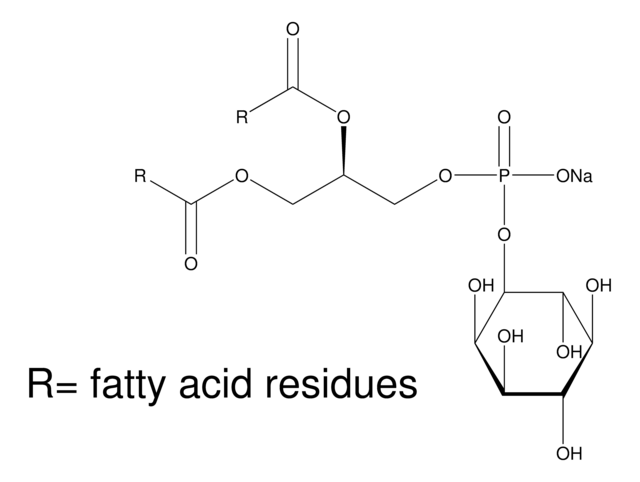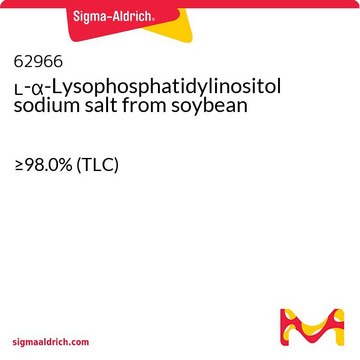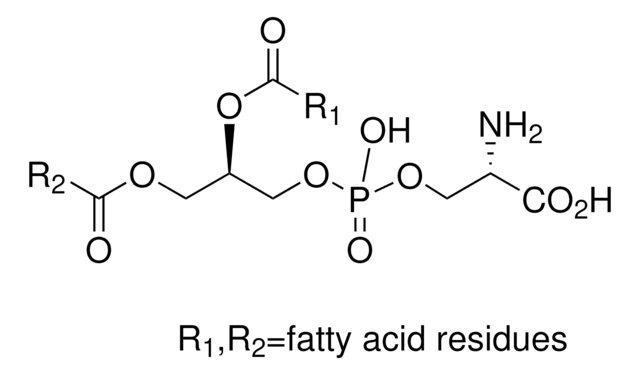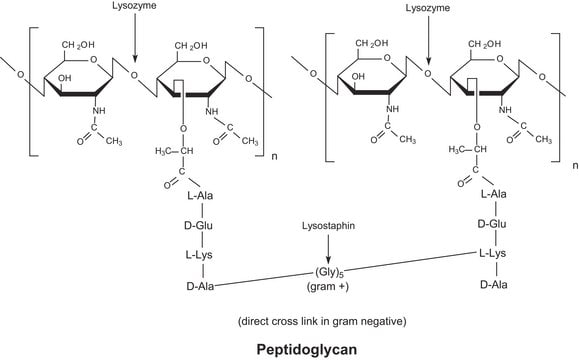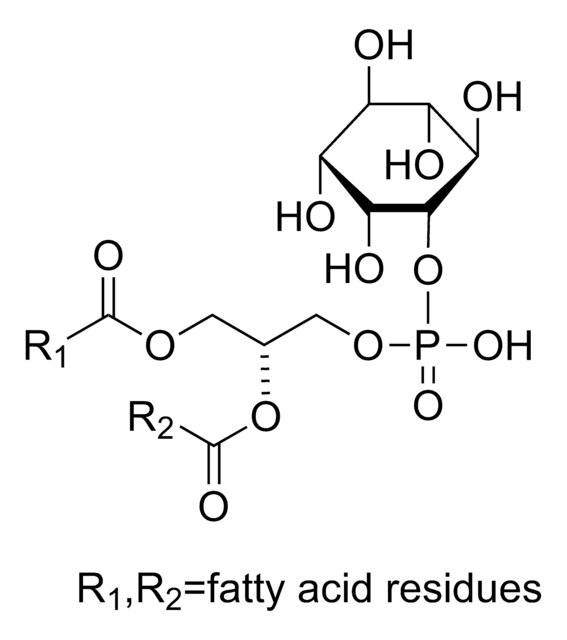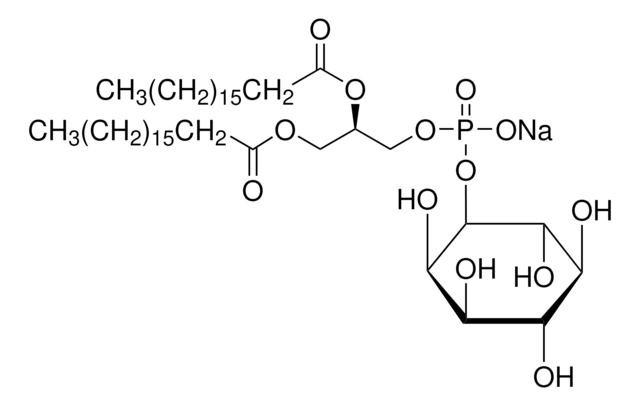L7635
L-α-Lysophosphatidylinositol sodium salt from Glycine max (soybean)
≥96%
Sinónimos:
1-Acyl-sn-glycero-3-phospho-(1-D-myo-inositol)
Iniciar sesiónpara Ver la Fijación de precios por contrato y de la organización
About This Item
Productos recomendados
biological source
soybean
assay
≥96%
form
powder
functional group
phospholipid
lipid type
phosphoglycerides
shipped in
ambient
storage temp.
−20°C
Application
L-α-Lysophosphatidylinositol sodium salt from Glycine max (soybean) has been used as an agonist of G protein-coupled receptor 55 (GPR55).
Biochem/physiol Actions
L-α-Lysophosphatidylinositols (LPI) functions as an endogenous ligand for putative cannabinoid receptor and G protein-coupled receptor 55 (GPR55). LPI plays a regulatory role in cell proliferation, migration and function. Increased circulatory levels of LPI has been observed in the obese patients. In addition, overexpression of LPI leads to the development of various types of cancers including ovarian and breast cancer. LPI can be used as a potential diagnostic and prognostic biomarker for ovarian cancer.
L-α-Lysophosphatidylinositols from Glycine max (soybean) are enriched with stearate and palmitate. Soybean Lysophosphatidylinositols may be compared with other lysophosphatidylinositol for biological activities which depend upon the identity of the acylated fatty acid.
Quality
Contains primarily palmitic and stearic acids.
Preparation Note
Prepared by the action of phospholipase A on L-α-phosphatidylinositol.
Storage Class
11 - Combustible Solids
wgk_germany
WGK 3
flash_point_f
Not applicable
flash_point_c
Not applicable
ppe
Eyeshields, Gloves, type N95 (US)
Certificados de análisis (COA)
Busque Certificados de análisis (COA) introduciendo el número de lote del producto. Los números de lote se encuentran en la etiqueta del producto después de las palabras «Lot» o «Batch»
¿Ya tiene este producto?
Encuentre la documentación para los productos que ha comprado recientemente en la Biblioteca de documentos.
Lysophosphatidylinositol stimulates [³⁵S]GTPγS binding in the rat prefrontal cortex and hippocampus.
Maria Luisa Rojo et al.
Neurochemical research, 37(5), 1037-1042 (2012-01-25)
Lysophosphatidylinositol (LPI) is a biologically active lipid that produces a number of responses in cultured cells, and has been suggested to have neuroprotective properties in vivo. Some of the actions of LPI are mediated by G-protein coupled receptors, but it
The L-alpha-lysophosphatidylinositol/GPR55 system and its potential role in human obesity
Moreno-Navarrete J, et al.
Diabetes, 61(2), 281-291 (2012)
The endocannabinoids anandamide and virodhamine modulate the activity of the candidate cannabinoid receptor GPR55
Sharir H, et al.
Journal of Neuroimmune Pharmacology, 7(4), 856-865 (2012)
Haleli Sharir et al.
Journal of neuroimmune pharmacology : the official journal of the Society on NeuroImmune Pharmacology, 7(4), 856-865 (2012-03-29)
The role of cannabinoid receptors in inflammation has been the topic of many research endeavors. Despite this effort, to date the involvement of the endocannabinoid system (ECS) in inflammation remains obscure. The ambiguity of cannabinoid involvement may be explained by
A novel biological role for the phospholipid lysophosphatidylinositol in nociceptive sensitization via activation of diverse G-protein signaling pathways in sensory nerves in vivo
Gangadharan V, et al.
Pain, 154(12) (2013)
Nuestro equipo de científicos tiene experiencia en todas las áreas de investigación: Ciencias de la vida, Ciencia de los materiales, Síntesis química, Cromatografía, Analítica y muchas otras.
Póngase en contacto con el Servicio técnico